
Why Our Cleanser Is Better
The way a vagina or vulva smells has become a major source of insecurity for women.
But before we get into that crazy business, let’s first get clear on the difference between the two.
While vagina has emerged as the term of choice for women's genitalia, vulva is actually the correct term for all of the external organs, including the pubic mound, the labia majora and minora, the clitoris, the external openings of the urethra (the hole you pee from) and the vagina. The vagina is the muscular canal that connects the vulva to the cervix - the opening to the uterus.
Although cute euphemisms, or simply referring to the whole shebang as “vagina” can make us feel more comfortable in discussing what’s going on “down there”, using the correct language is important because it helps us make sense of what we know and feel in our bodies, enables clear and honest expression with our partners and healthcare providers, and gives us the tools to speak about and address issues related to feminine hygiene - including how we smell!
The thing is, women have been socialized to believe that we smell bad for decades. In 1928, Lysol sold vaginal “disinfectants” to women with ad copy asserting that husbands and wives could “continue to enjoy the things they did as newlyweds” if women practiced the correct form of feminine hygiene. And today, based on the amount of harmful vaginal cleaning products still sold in drugstores, the monetization of intimate fears about intimate places is still alive and well.
A new approach to women’s personal hygiene is so overdue.
So let’s start with the truth. Although unusual, strong odors can happen, most often due to bacterial imbalances or infections, healthy vulvas and vaginas have a smell, and they smell exactly as they should.
So what keeps the vulva and vagina healthy?
For vaginas, it’s all about a balanced diet, women-friendly probiotics, and good personal hygiene that doesn't include douching, harsh soaps or chemicals that disrupt vaginal flora (the *good bacteria). In fact, products like that often cause the problem they are marketed to solve. Ultimately, the vagina is self-cleaning, and pretty much takes care of itself.
As for the vulva, it needs safe and external cleansing to protect the vaginal environment. That’s what’s perfect about the pH Balancing cleanser - it actually maintains good bacteria during cleansing instead of killing it.
Every woman deserves to feel shame-free about her body - vagina and vulva included. Using personal cleansing products made with good-for-you ingredients can help build confidence. Speaking about your body with the correct terminology can be empowering, and getting acquainted with how you actually smell can be liberating (as well as a great way to stay on track if anything unusual does arise). So ditch the lysol lineage ladies, once and for all.
Shop Our Founder's Favorites Wellness Products
-
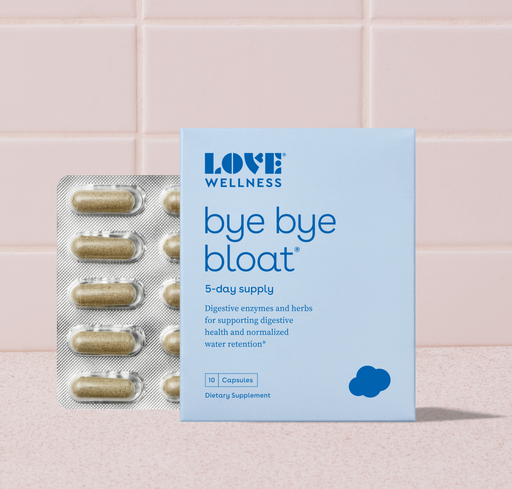 NEW!
NEW!Bye Bye Bloat® Travel Size
Alleviates bloating fast*
$8.99 One-time PurchaseA blend of digestive enzymes and herbs that alleviates bloating fast.* - Gluten-Free & Dairy-Free - Take 1-2 capsules after a meal or before b...
View full details -
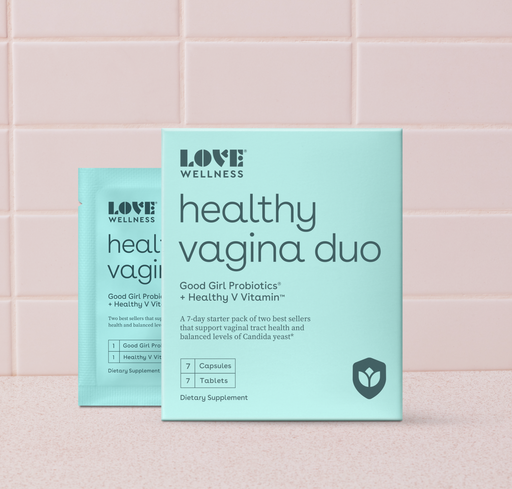 NEW!
NEW!Healthy Vagina Travel Kit
Supports vaginal & urinary tract health*
$16.99 One-time Purchase- 7-day supply — perfectly sized to take on the go so you can keep your routine up when you’re not at home! - Good Girl Probiotics®: Helps to maint...
View full details -
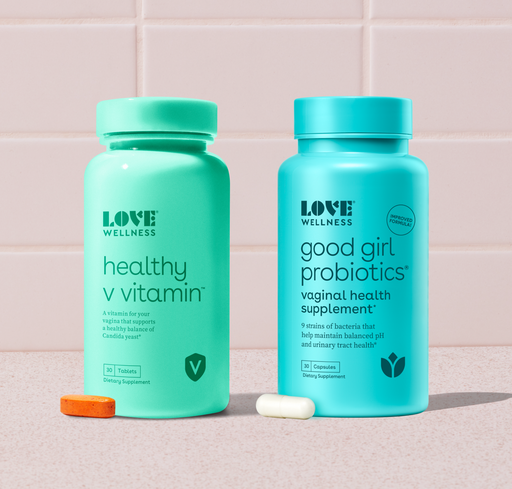

Healthy Vagina Bundle
Supports vaginal & urinary tract health*
$35.24 Subscribe & Save$46.99 One-time PurchaseFor vaginal & urinary tract health. HOW IT WORKS Together, this powerful duo supports your vaginal health by balancing bacteria and yeast. Go...
View full details -
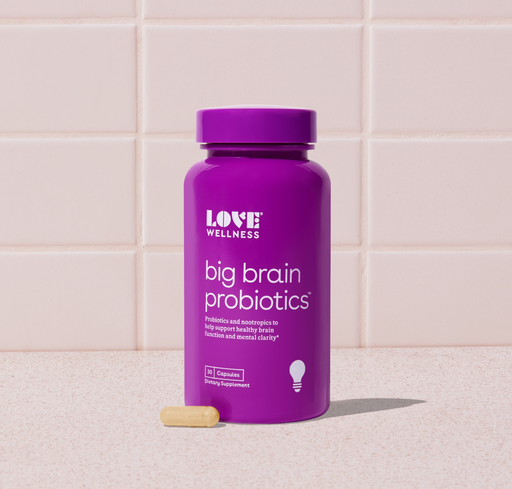
Big Brain Probiotics®
Helps support brain function*
$22.49 Subscribe & Save$29.99 One-time PurchaseA blend of probiotics and nootropics to help support brain function, cognitive health, and help maintain a healthy mood and sense of calm.* - Vegan...
View full details -
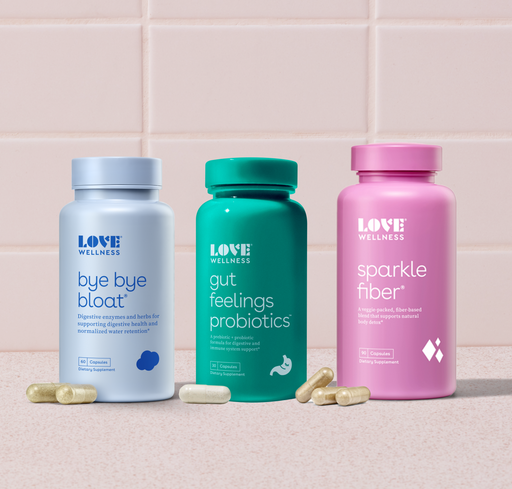

Bloating Bundle
Helps boost your gut health*
$54.74 Subscribe & Save$72.99 One-time PurchaseBeat bloat with this combo of fiber, digestive enzymes, and probiotics that naturally boost your gut health.* gut, bloating, gas, reflux, probiot...
View full details -
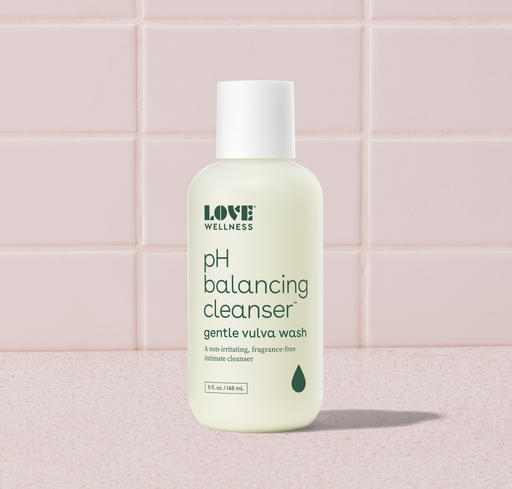
pH Balancing Cleanser™
Gently cleanses your vulva
$11.24 Subscribe & Save$14.99 One-time PurchaseA fragrance-free, gentle cleanser for your vulva to help maintain a balanced vaginal microbiome. - Gluten-Free, Dairy-Free, Vegan - Apply to wet s...
View full details -
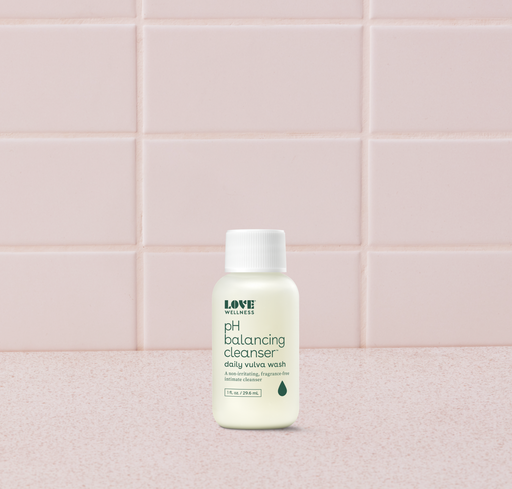 NEW!
NEW!pH Balancing Cleanser™ Travel Size
Gently cleanses your vulva
$4.99 One-time PurchaseA fragrance-free, gentle cleanser for your vulva to help maintain a balanced vaginal microbiome. - Gluten-Free, Dairy-Free, Vegan - Apply to wet s...
View full details -
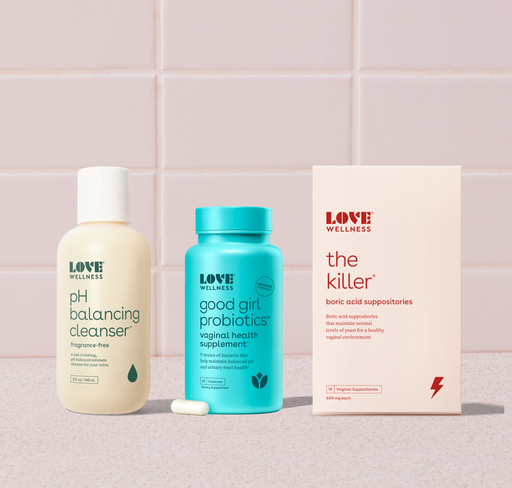

Vaginal pH Bundle
Three, must-have products to keep your pH balanced.
$40.49 Subscribe & Save$53.99 One-time PurchaseThree, must-have products to keep your pH balanced: a daily vaginal probiotic, a fast-acting suppository, and a fragrance-free vulva cleanser.*








